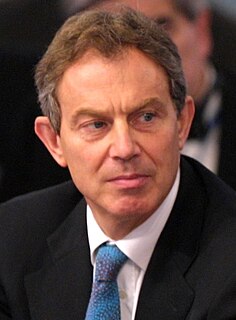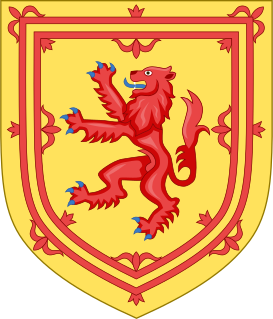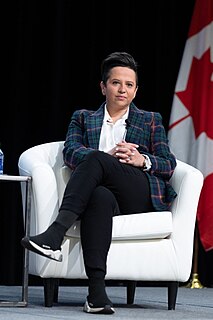
The 2001 United Kingdom general election was held on Thursday 7 June 2001, four years after the previous election on 1 May 1997, to elect 659 members to the House of Commons. The governing Labour Party was re-elected to serve a second term in government with another landslide victory with a 167 majority, returning 412 members of Parliament versus 418 from the 1997 general election, a net loss of six seats, though with a significantly lower turnout than before—59.4%, compared to 71.3% at the previous election. The number of votes Labour received fell by nearly three million. Tony Blair went on to become the first Labour Prime Minister to serve two consecutive full terms in office. As Labour retained almost all of their seats won in the 1997 landslide victory, the media dubbed the 2001 election "the quiet landslide".

The United Kingdom is a unitary state with devolution that is governed within the framework of a parliamentary democracy under a constitutional monarchy in which the monarch, currently Charles III, King of the United Kingdom, is the head of state while the Prime Minister of the United Kingdom, currently Liz Truss, is the head of government. Executive power is exercised by the British government, on behalf of and by the consent of the monarch, and the devolved governments of Scotland, Wales and Northern Ireland. Legislative power is vested in the two chambers of the Parliament of the United Kingdom, the House of Commons and the House of Lords, as well as in the Scottish, Northern Irish and Welsh parliaments. The British political system is a two party system. Since the 1920s, the two dominant parties have been the Conservative Party and the Labour Party. Before the Labour Party rose in British politics, the Liberal Party was the other major political party, along with the Conservatives. While coalition and minority governments have been an occasional feature of parliamentary politics, the first-past-the-post electoral system used for general elections tends to maintain the dominance of these two parties, though each has in the past century relied upon a third party, such as the Liberal Democrats, to deliver a working majority in Parliament. A Conservative–Liberal Democrat coalition government held office from 2010 until 2015, the first coalition since 1945. The coalition ended following parliamentary elections on 7 May 2015, in which the Conservative Party won an outright majority of seats, 330 of the 650 seats in the House of Commons, while their coalition partners lost all but eight seats.

The 1979 United Kingdom general election was held on Thursday 3 May 1979 to elect 635 members to the British House of Commons.

The 1992 United Kingdom general election was held on Thursday 9 April 1992, to elect 651 members to the House of Commons. The election resulted in the fourth consecutive victory for the Conservative Party since 1979 and would be the last time that the Conservatives would win an overall majority at a general election until 2015. It was also the last general election to be held on a day which did not coincide with any local elections until 2017. This election result took many by surprise, as opinion polling leading up to the election day had shown the Labour Party, under leader Neil Kinnock, consistently, if narrowly, ahead.

The politics of Scotland operate within the constitution of the United Kingdom, of which Scotland is a home nation. Scotland is a democracy, being represented in both the Scottish Parliament and the Parliament of the United Kingdom since the Scotland Act 1998. Most executive power is exercised by the Scottish Government, led by the First Minister of Scotland, the head of government in a multi-party system. The judiciary of Scotland, dealing with Scots law, is independent of the legislature and the executive. Scots law is primarily determined by the Scottish Parliament. The Scottish Government shares some executive powers with the Government of the United Kingdom's Scotland Office, a British government department led by the Secretary of State for Scotland.

Sir Malcolm Leslie Rifkind is a British politician who served in the cabinets of Margaret Thatcher and John Major from 1986 to 1997, and most recently as chair of the Intelligence and Security Committee of Parliament from 2010 to 2015.

The Unionist Party was the main centre-right political party in Scotland between 1912 and 1965.

The 2005 United Kingdom general election was held on Thursday 5 May 2005, to elect 646 members to the House of Commons. The Labour Party, led by Tony Blair, won its third consecutive victory, with Blair becoming the second Labour leader after Harold Wilson to form three majority governments. However, its majority fell to 66 seats compared to the 167-seat majority it had won four years before. This was the first time the Labour Party had won a third consecutive election, and remains the party's most recent general election victory.
Raymond Scott Robertson is a Scottish Conservative politician.
Brian Monteith is a British politician, public relations consultant and commentator. As a member of the Scottish Conservatives, he was a Member of the Scottish Parliament (MSP) for the Mid Scotland and Fife region from 1999 to 2007. Later a member of the Brexit Party, he was a Member of the European Parliament (MEP) for North East England from 2019 to 2020.

The Scottish Conservative & Unionist Party, often known simply as the Scottish Conservatives, is a centre-right political party in Scotland. It is the second-largest party in the Scottish Parliament and the third-largest in Scottish local government. The party has the second-largest number of Scottish MPs in the House of Commons of the United Kingdom and the seventh overall.
The Royal Norwegian Ministry of Transportation is a Norwegian ministry established in 1946, and is responsible for transportation in Norway. The ministry was responsible for communication infrastructure until may 2019, when the responsibility for the Norwegian Communications Authority was transferred to Ministry of Local Government and Regional Development. Since October 2021, the ministry has been headed by Jon-Ivar Nygård. The department must report to the parliament (Stortinget).

The 1997 Prime Minister's Resignation Honours were officially announced in two supplements to The London Gazette of 1 August 1997 and marked the May 1997 resignation of the Prime Minister, John Major.

The 2014 European Parliament election was the United Kingdom's component of the 2014 European Parliament election, held on Thursday 22 May 2014, coinciding with the 2014 local elections in England and Northern Ireland. In total, 73 Members of the European Parliament were elected from the United Kingdom using proportional representation. England, Scotland and Wales use a closed-list party list system of PR, while Northern Ireland used the single transferable vote (STV).
Better Together was the principal campaign for a No vote in the 2014 Scottish independence referendum, advocating Scotland continuing to be part of the United Kingdom. The organisation was formed in June 2012, operating until winning the vote on the referendum's polling day on 18 September 2014 with 2,001,926 (55.3%) voting against independence and 1,617,989 (44.7%) voting in favour. In June 2014, the campaign adopted a No Thanks branding, in relation to the referendum question.

The 2015 United Kingdom general election was held on Thursday, 7 May 2015 to elect 650 members to the House of Commons. It was the first and only general election held at the end of a Parliament under the Fixed-term Parliaments Act 2011. Local elections took place in most areas on the same day.
The fifty-fifth Parliament of the United Kingdom was the legislature of the United Kingdom following the 2010 general election of members of parliament (MPs) to the House of Commons. Parliament, which consists of the House of Lords and the elected House of Commons, was convened on 25 May 2010 at the Palace of Westminster by Queen Elizabeth II. It was dissolved on 30 March 2015, being 25 working days ahead of the 2015 general election on 7 May 2015.
The 2019 Prime Minister's Resignation Honours are honours awarded following the July 2019 resignation of the Prime Minister, Theresa May. The life peerages and other honours were issued as two separate lists by the Cabinet Office on 10 September 2019, while the honours were gazetted as one list on 28 October 2019.

Craig William Hoy is a Scottish Conservative Party politician. He has been a Member of the Scottish Parliament (MSP) for the South Scotland region since the 2021 election. As of 2022, he is also Chairman of the Scottish Conservative Party.

Melissa LantsmanMP is a Canadian politician and public relations executive who serves as the Member of Parliament for Thornhill in the House of Commons of Canada. A member of the Conservative Party of Canada, she was elected in the 2021 Canadian federal election. She is the first openly lesbian and first Jewish woman ever to be elected as a Conservative MP. Upon election of Pierre Poilievre as Conservative Leader, Pierre named Melissa one of two deputy leaders along with Edmonton MP Tim Uppal.













